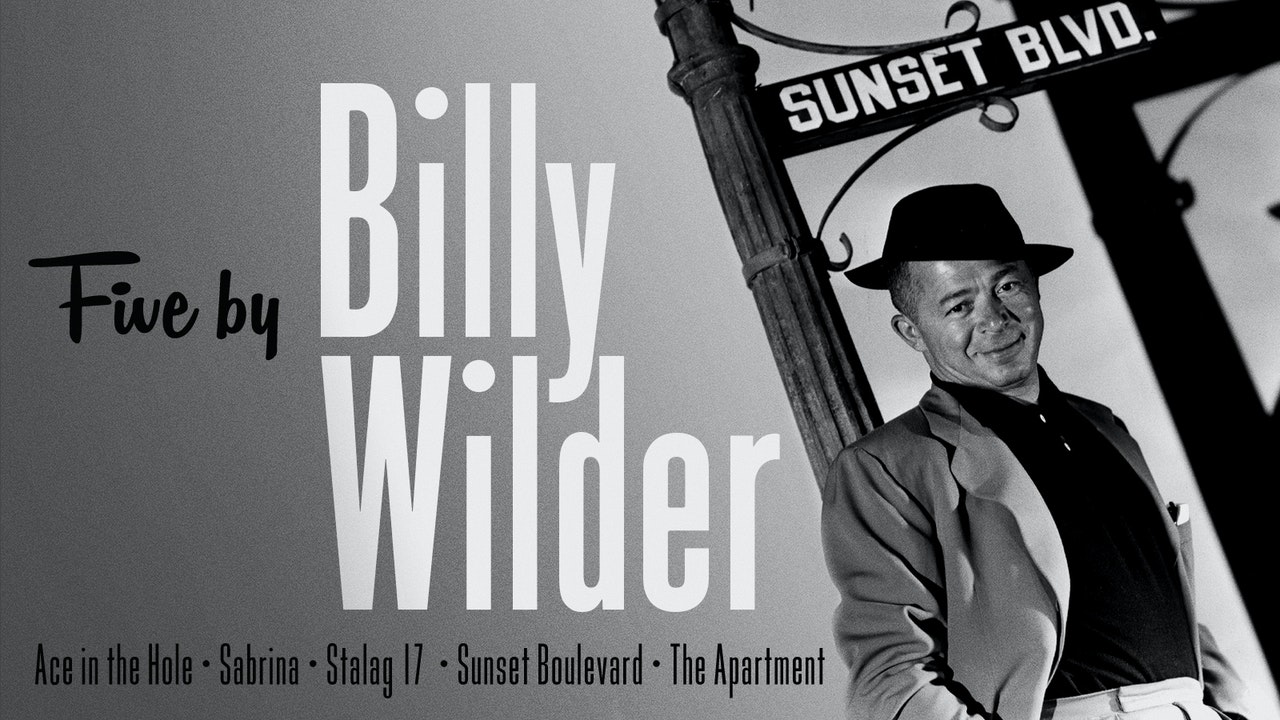
Having a Criterion Channel subscription often feels like opening Christmas presents each month. Their monthly programming always provides subscribers with curated series from some of the greatest classic artists both domestically and in world cinema. This month, the Criterion Channel decided to honor the legendary director Billy Wilder with a sampling of five of his movies. The legendary Austrian director won six competitive Oscars over his decades-long career, plus an additional Irving G. Thalberg Memorial Award in 1988.
Although—or perhaps because—he was born in Austria, writer, director, and Hollywood legend Billy Wilder saw America more clearly than most, probing its absurdities and hypocrisies with a witty yet lacerating eye. This sampler of five of his finest—including the Tinseltown tragedy Sunset Blvd., scathing media satire Ace in the Hole, and gripping POW drama Stalag 17—showcases the pitch-perfect blend of human understanding and barbed cynicism that defines Wilder worldview.
For this piece, I revisited two of my all-time favorites, re-experienced one I didn't remember well, and discovered two new (to me) gems. Let’s take a look at the films the Criterion Channel chose to highlight...
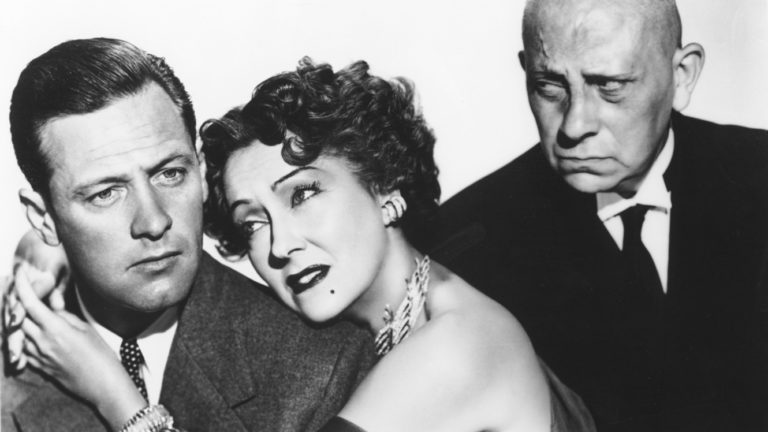
SUNSET BLVD. (1950)
There are innumerable angles one can take when discussing Sunset Blvd. Sometimes; perfect films are the hardest to write about for this reason. While watching these five films, the one element that seemed to be consistent throughout was that the protagonist starts out at rock bottom. They crawl their way to some chance at success, only to succeed or fail by the end. Some might think this applies to Norma Desmond (Gloria Swanson), the old silent film star discarded by Hollywood. However, Norma lives in a reality of her own making. When you’re the star of your own movie, how could you ever be truly unhappy? No, I’m referring to Joe Gillis (William Holden), a screenwriter who is in way more debt than demand. Hitching his wagon to the delusional gumption of Norma is simultaneously his saving grace and his death warrant.
Crazy would be the wrong way to describe Norma. In fact, the entire main trio of the film, including Norma’s assistant Max (Erich von Stroheim), operates with their own level of delusion to get through the day. Norma just makes more of a fuss about her reality. Joe sells his soul to Salome, indulging in Norma’s fantasies and adopting them as his own. Max reinforces Norma’s reality to the point that he believes it as well. Surviving is a dangerous business. Once Joe steps into that Sunset Blvd. mansion (so gorgeously decorated by Art Directors Hans Dreier and John Meehan and Set Decorators Sam Comer and Ray Moyer), he’s signing up for a whole new world. Going against the rules of the actual world costs him his life in the end.
Never turn down an opportunity to watch Sunset Blvd. Each rewatch will provide you a new prism to appreciate the film. This is the crowning achievement of Billy Wilder’s illustrious career.
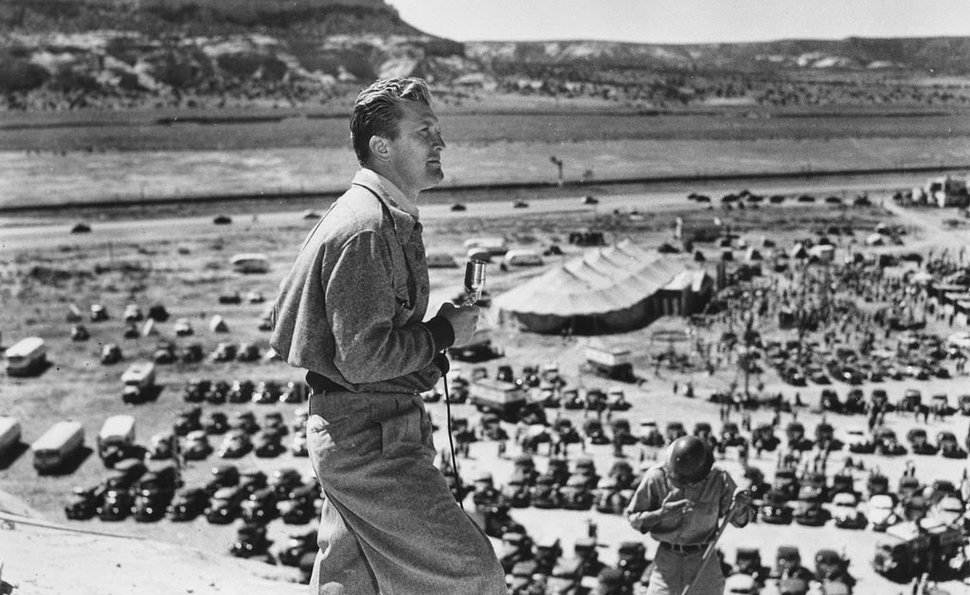
ACE IN THE HOLE (1951)
Speaking of starting at rock bottom, Kirk Douglas’ Chuck Tatum arrives in Albuquerque via tow truck. An incorrigible drunk with a bad reputation, Chuck has been fired from every major publication and is forced to beg for a job at the local newspaper. When there’s no news in town, it’s up to the newspaper man to make the news, and Chuck knows how to draw attention. Upon finding that a man - Leo Minosa (Richard Benedict) - is trapped in an old Native American dwelling, Chuck turns the tragedy into a sensationalized news story. The need to drum up publicity speaks to a lot of qualities of Chuck’s - vapidness, selfishness, cynicism. However, the media circus balloons to a point where Chuck deliberately sacrifices the man’s safety in exchange for more exposure.
Entertainment and heartbreak go hand to hand in a Billy Wilder film. Ace in the Hole perfectly demonstrates this. By the midpoint of the film, there are food vendors, carnival games and even rides at the site. What Wilder exposes is that the public is always hungry for a cause, or something to rally behind. Certain things sell - sex, tragedy, violence, thrills and chills. Ace in the Hole has them all. Jan Sterling vamps it up as Lorraine, Leo’s wife who was about to leave him, but decides to play the “concerned wife” role so her shop can get more business. Chuck and Lorraine eventually have an affair, moreso because Lorraine wants to hitch herself to a shooting star and Chuck wants to hitch himself to… well someone.
Wilder’s characters understand the roles that audiences understand - the charismatic leader, the hero in peril, the mourning wife. There’s a convincing narrative to Chuck’s coverage that audiences can easily digest. This keeps them from asking the hard questions and seeing the dark underbelly to the story and the motivations that end up costing Leo his life. In Wilder’s hands, storytelling is a weapon, not a gift.
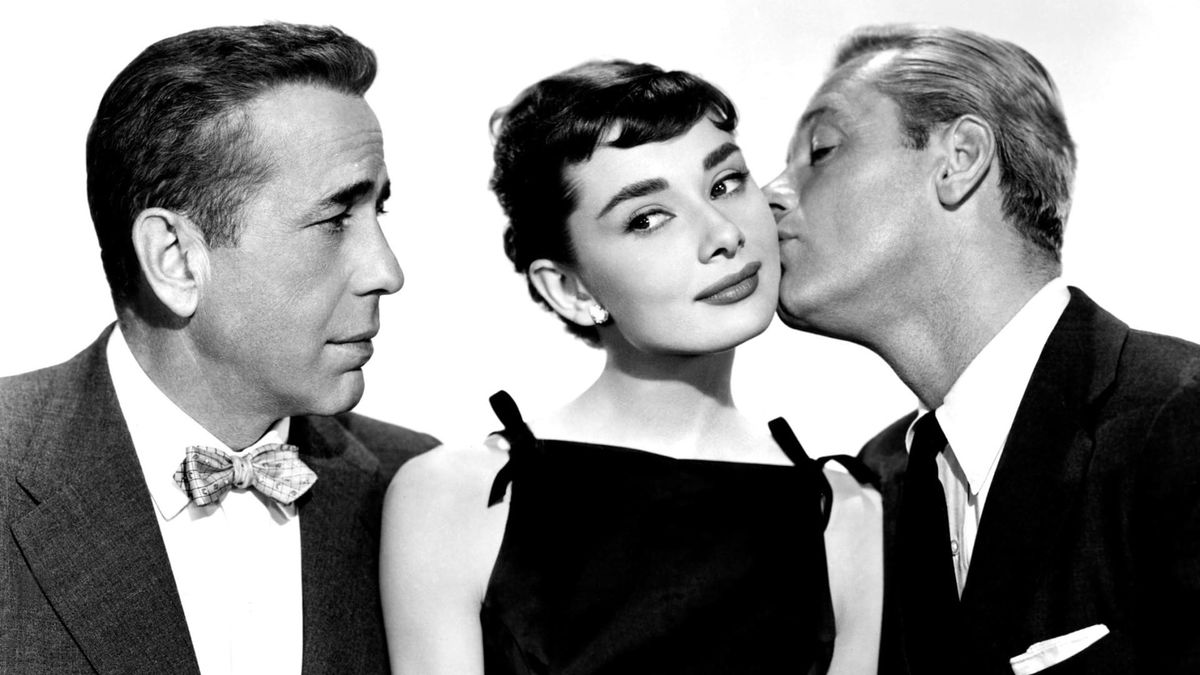
SABRINA (1954)
People don’t often associate Audrey Hepburn with misery, but her working class Sabrina starts the film ready to kill herself over her playboy love David Larabee (William Holden). After David’s more sensible brother, Linus (Humphrey Bogart), saves her, a flurry of rom-com tropes begin. Sabrina flies off to Paris to study cooking. This jaunt substitutes a makeover montage, with Sabrina returning to the Larabee manor bright, beautiful and eligible for both of the Larabee men. All of the sudden, we have a classic romantic triangle.
So many romantic comedies play off class disparity for conflict, and Sabrina is no exception. It’s futile to grade classic films with today’s social politics curve, as you're always setting yourself up for failure. That said, there’s something icky about the romantic triangle being around two rich brothers fighting over one of their employees. Though Hepburn’s Sabrina gets to make the choice in the end, her journey of self-actualization is driven fully by a desire to be noticed by the Larabee boys. The thirty year age gap between Bogart and Hepburn doesn’t help.
It’s a testament to Wilder’s directorial vision that Sabrina still has sumptuous charms. The Larabee mansion feels like the sunny counterpoint to Norma Desmond’s dilapidated mansion. Within this, the different upstairs/downstairs worlds feel completely different, even in the same space. Wilder also knows how to stage physical comedy well. A sequence involving a hammock and David’s fractured ass is a particular highlight. Even when the plot and character motivations don’t always add up, Wilder knows how to make a classic, entertaining film.
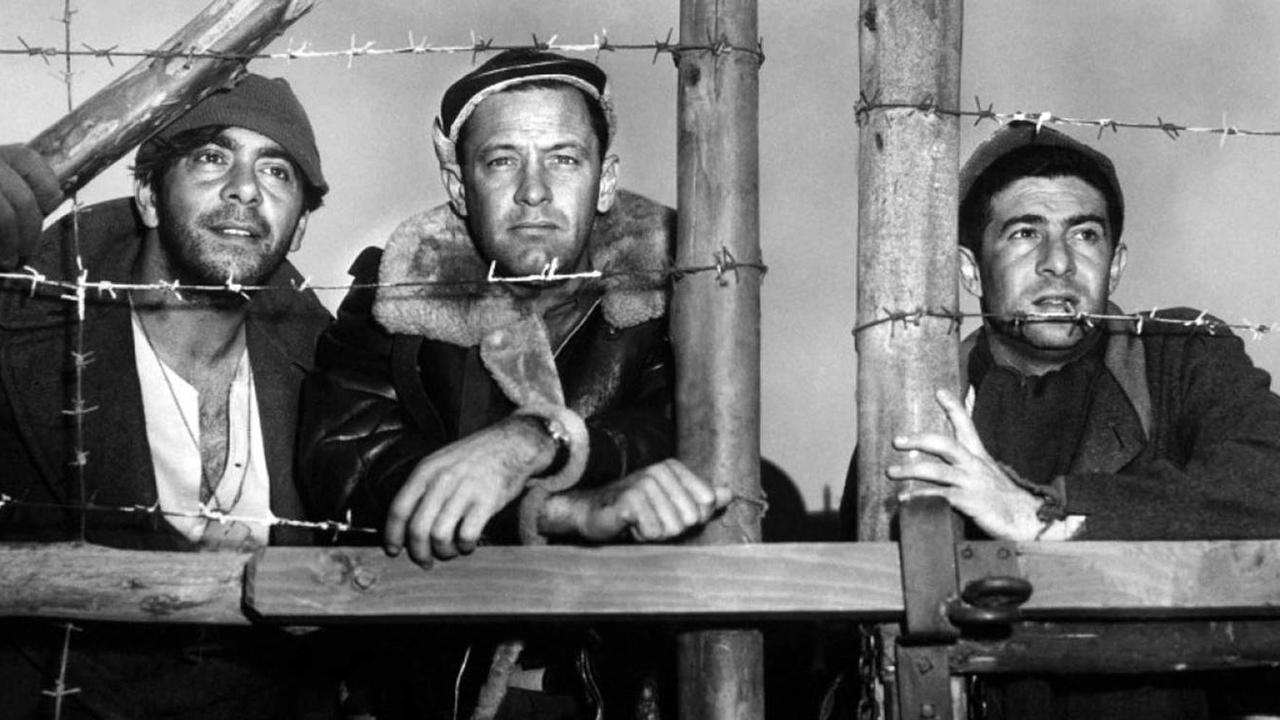
STALAG 17 (1953)
From the opening moments, Stalag 17 vows to be a movie for and about the POW experience during WW2. Only under Billy Wilder could it be a comic-drama. William Holden won Best Actor for his role as J.J. Sefton, the social director of one of the barracks who many believe is thwarting escape missions by leaking information to the Germans. From here, Sefton must not only clear his name, but figure out who the real mole in Stalag 17 is and expose them. Holden effectively dramatizes what it must be like to play a game of Clue where the stakes are one’s freedom. However, what makes Stalag 17 such a quintessential example of Wilder’s skill as a director and writer is its tone.
Of the five films in this series, save maybe Sabrina, Stalag 17 is the most upbeat moment to moment. That’s not what you would think when you read the synopsis of the POW drama. It understands the central truth of the human experience - even under great duress, humans adapt and find moments of levity. Soldiers can be in captivity and find ways to lighten the mood. If they couldn’t, how would they wake up in the morning? The main sources of comic relief are the wisecracking Sgt. Harry Shapiro (Harvey Lembeck) and the lovable lummox Sgt. Stanislaus “Animal” Kuzawa (Robert Strauss, Oscar nominated). One particularly memorable moment comes during Christmas when Animal, in a stupor (possibly from the makeshift distillery), mistakes Shapiro for his celeb crush Betty Grable and starts putting the moves on him.
Wilder succeeds at making Stalag 17 realistic not because of the drama or the torture. For once, we get a picture of what the unmemorable days of being captive look like. They’re filled with laughs, pranks, low moments, high moments and people just trying to pass the boredom.
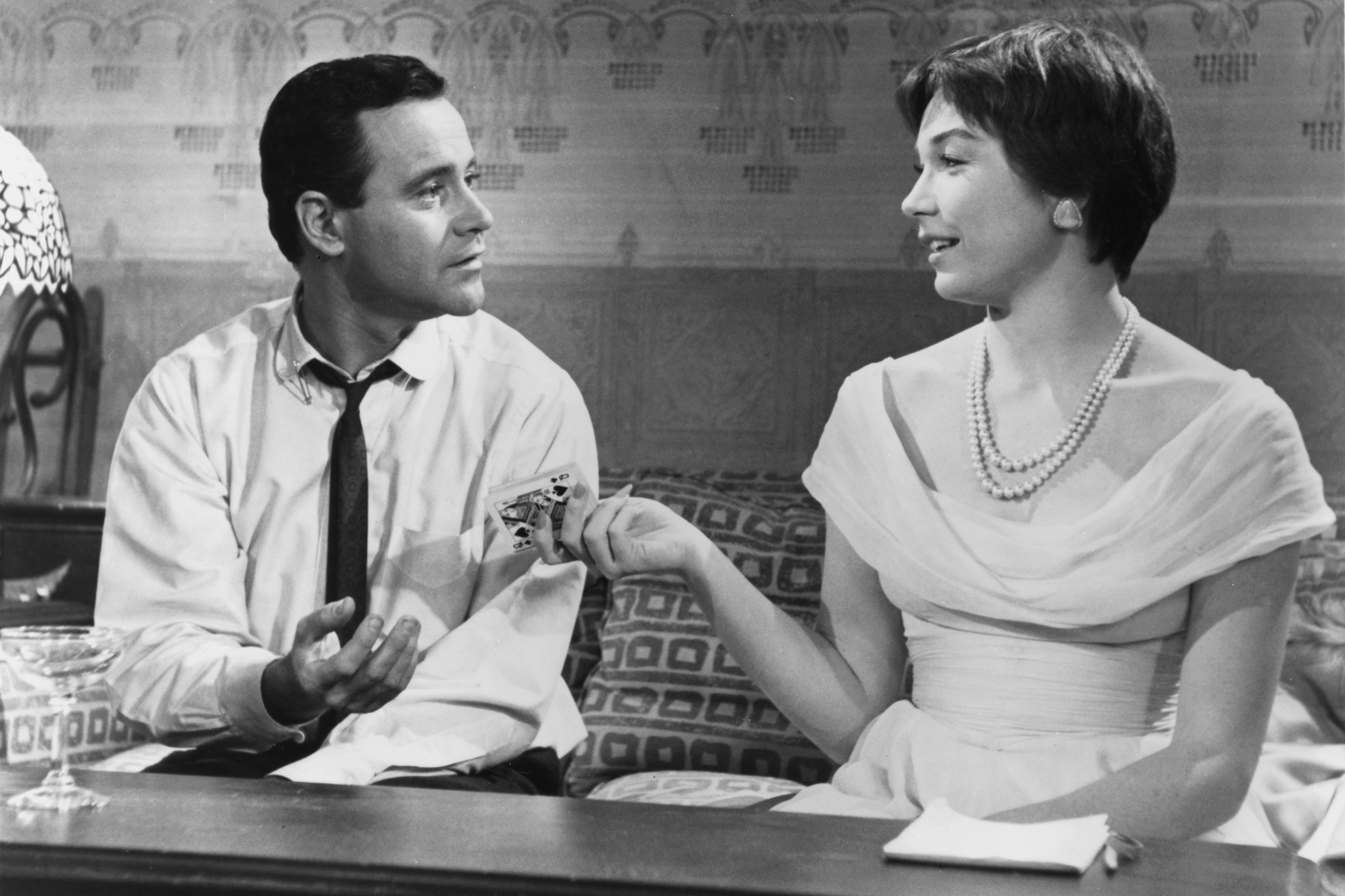
THE APARTMENT (1960)
We end as we began with an unparalleled masterpiece. Billy Wilder’s second Best Director and Best Picture Oscars came for this beautifully melancholic romantic dramedy. On paper, the set-up feels simple. C.C. Baxter (Jack Lemmon) has feelings for the elevator girl at his work, Fran Kubelik (Shirley MacLaine). The only problem is that his boss, Jeff Sheldrake (Fred MacMurray), has been seeing her. Oh wait, I forgot the titular “Apartment.”
In a post-#metoo world, The Apartment is an even more poignant. C.C. rents his apartment out to his executives so they have a place where they can cheat on their wives. In doing so, he puts himself at severe discomfort, but gets ahead at work. Meanwhile, Sheldrake is married and Fran is hopelessly in love with him, even though he won’t leave his wife. It’s a searing look at how the corporate structure turns even the best of men into transactional monsters.
The mix of light comedy and deep wells of sadness that Wilder experimented with in Sabrina works miles better here. Our entire second act takes place in C.C.’s apartment following Fran’s attempted suicide. What bonds C.C. and Fran is that they are lost souls looking to stand on their own two feet. Only within C.C.’s apartment do the sexual politics of the office fade away. Just like the mansion in Sabrina and Sunset Blvd, as well as the barracks in Stalag 17, the apartment takes on a life of its own. Not to borrow from Harry Potter, but it’s a Room of Requirement, where it can mean a lot of things depending on the use. For the executives at C.C.’s company, it’s a den of iniquity. For Fran, it becomes a safe haven. C.C. trades away his ownership of his space in order for advancement, but his advancement doesn’t bring him peace at home.
Our central couple, C.C. and Fran, end up together in the end. However, it’s not a grand “I love you” speech we normally hear. “Shut up and deal,” Fran says as C.C. lays out his feelings. Even though both have grown a lot during the film, they are still emotionally damaged people. Who knows what lies in store for C.C. and Fran. All they can do is shut up and see what the next hand brings them.
RANKING OF THE FIVE BY BILLY WILDER
-
Sunset Blvd. (1950)
-
The Apartment (1960)
-
Ace in the Hole (1951)
-
Stalag 17 (1953)
-
Sabrina (1954)
The mark of a great director is how varied and deep their filmography is. Billy Wilder has more than just the five classics covered in this series. One could fill multiple “Five by Billy Wilder” lists with different movies and still get the same level of quality as the Criterion Channel’s list.
ADDITIONAL “FIVE BY BILLY WILDER” RECOMMENDATIONS
-
Some Like It Hot (1959) - Wilder’s comic masterpiece has something for everyone: cross dressing shenanigans, gangster chases, prohibition anxieties and Marilyn Monroe at her most luminous.
-
Double Indemnity (1944) - Barbara Stanwyck is the apex predator femme fatale black widow. Billy Wilder threads the needle perfectly in this dark thriller.
-
Ninotchka (1939) - Written by Billy Wilder and directed by Ernst Lubitsch (who also has a series on The Criterion Channel this month), Ninotchka perfectly combines a hilarious romantic comedy with a smart critique of the Soviet Union and the follies of capitalism. No one is safe under Wilder’s pen.
-
The Lost Weekend (1945) - The Best Picture winner is far from the lightest of Wilder’s filmography, but is still a worthwhile and compelling look at how addiction can take hold of a man (Ray Milland) filled with self hatred.
-
Witness for the Prosecution (1957) - Marlene Dietrich's motives are never as they seem. Wilder merges many genres (courtroom genre, murder mystery, marital drama) in one delectable package.
What are your favorite Billy Wilder films?